Social Learning and Peer Influence in Smallholder Commercialization
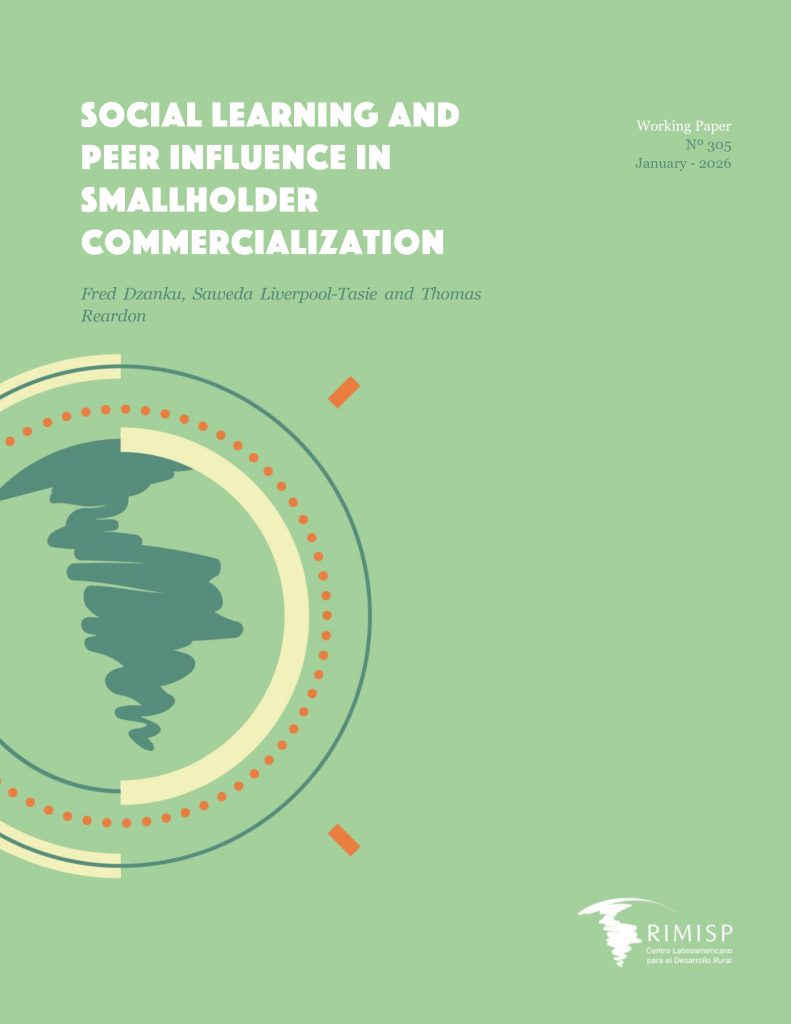
This paper examines how peer behavior influences small-scale producers’ (SSPs) decisions to purchase inputs and sell outputs in six sub-Saharan African countries. Using comparable nationally representative panel data and a correlated random effects framework, we assess the extent and shape of social interactions driving input and output market participation.
Welfare and Opportunities for Small-Scale Producers and MSMEs in Rural Africa: An Econometric Analysis
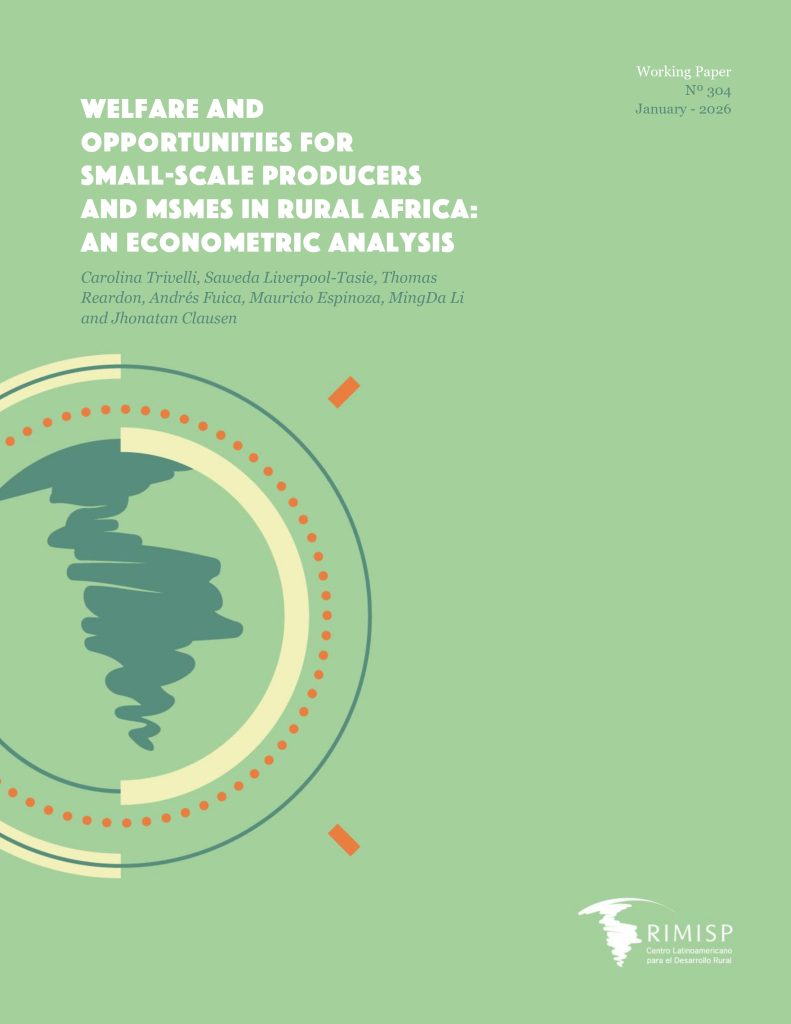
This study examines how participation in commercial agriculture and micro, small, and medium enterprises (MSMEs) is associated with inclusive development outcomes for small-scale producers (SSPs) across six African countries representing diverse income levels.
Annual Report 2025
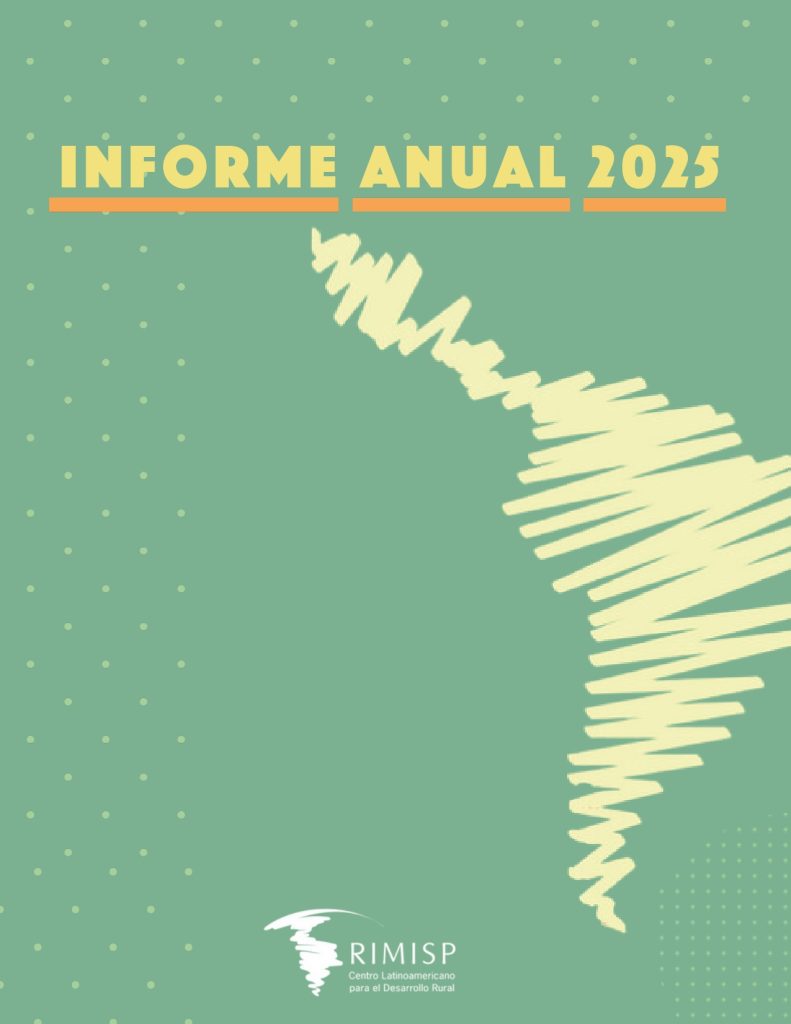
This document provides an overview of the work carried out during the year. It is divided into sections: projects, activities, publications, Rimisp academy, communications, international council and Rimisp’s network of donors and socios.
The hidden middle of agrifood systems: a systematic review of leading authors and policy recommendations
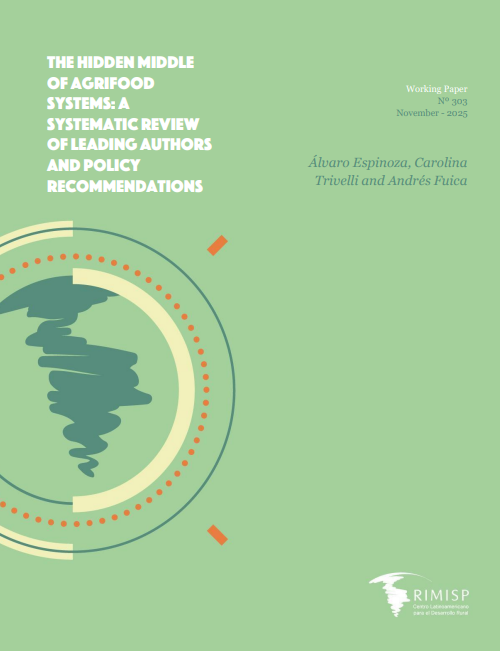
This report synthesizes the literature on the Hidden Middle of agrifood systems-the midstream segment that connects producers to markets through processing, logistics, and intermediation.
Evidence Review: Investments and Policies in Agrifood Chain Linkages
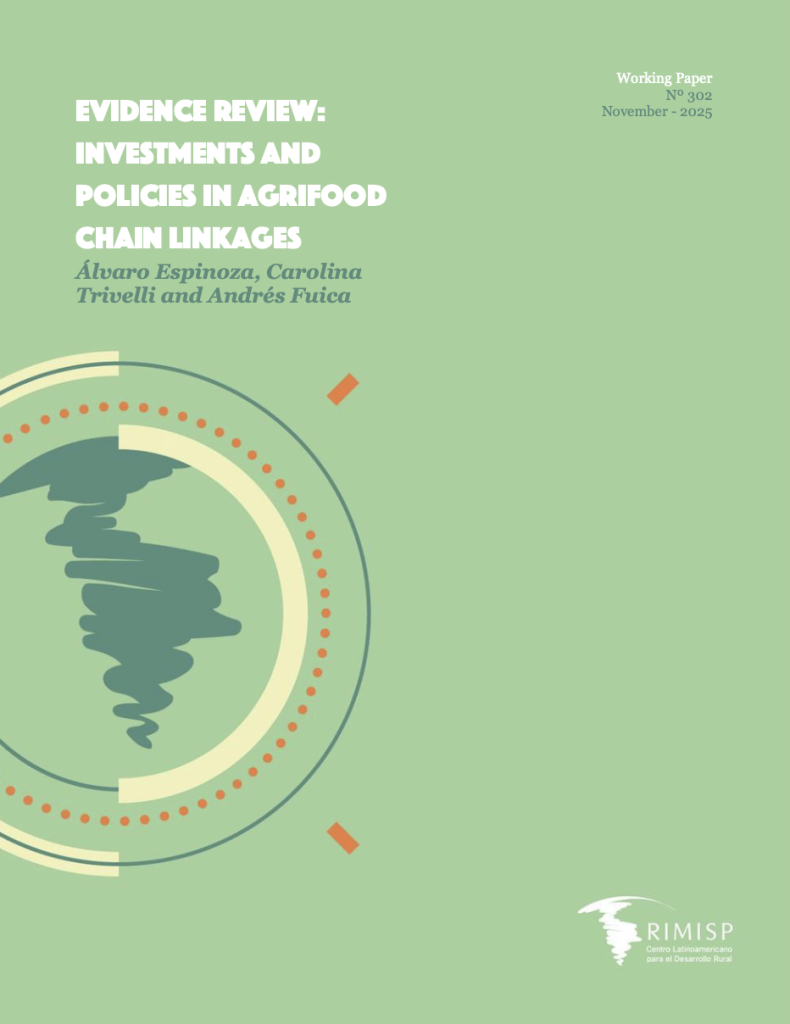
Agrifood systems are increasingly shaped by activities beyond the farm gate, yet the midstream and
downstream segments-known as the hidden middle-remain severely under-researched. This paper
presents a review of 276 impact evaluations and systematic reviews to assess what is currently known
about effective policies and programs targeting the hidden middle in low- and middle-income
countries. While 52% of the studies focus on smallholder-oriented interventions and 21% on public
goods, only 27% address the hidden middle, and nearly half of these concern contract farming-a
mechanism designed to bypass intermediaries rather than strengthen them. Most intervention
categories in the midstream and downstream are supported by fewer than four rigorous studies.
Moreover, services like storage, training, and market information are evaluated almost exclusively in
the context of producers, ignoring the micro, small, and medium enterprises (MSMEs) that dominate
the hidden middle. The paper concludes that addressing this evidence gap is essential to designing
inclusive, resilient agrifood systems and calls for a shift in research and policy focus toward the actors
and services that connect farms to markets and consumers.
Strengthening the Hidden Middle: Policy Lessons from the Global Research on Midstream Transformation
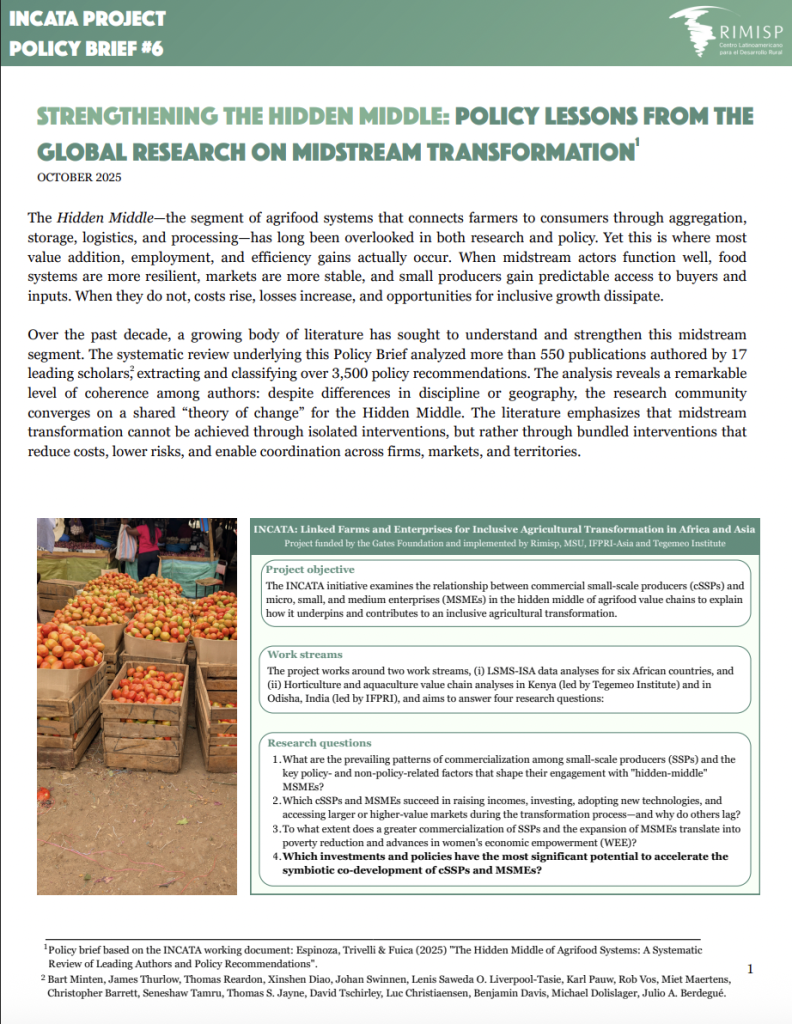
The Hidden Middle-the segment of agrifood systems that connects farmers to consumers through aggregation,
storage, logistics, and processing-has long been overlooked in both research and policy. Yet this is where most
value addition, employment, and efficiency gains actually occur. When midstream actors function well, food
systems are more resilient, markets are more stable, and small producers gain predictable access to buyers and
inputs. When they do not, costs rise, losses increase, and opportunities for inclusive growth dissipate.
Strengthening the Hidden Middle: Institutional Action, Effectiveness, and What to Do Next
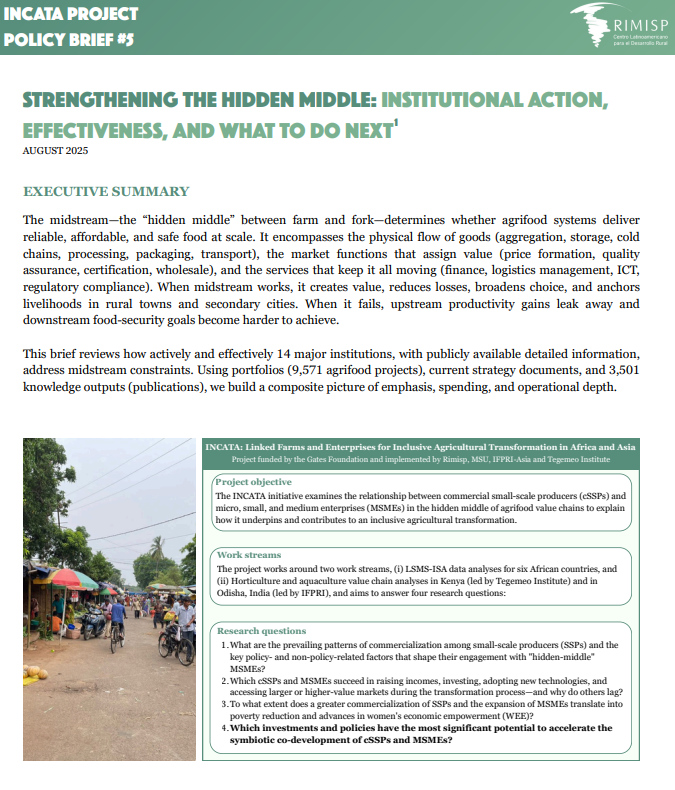
The midstream-the “hidden middle” between farm and fork-determines whether agrifood systems deliver
reliable, affordable, and safe food at scale. It encompasses the physical flow of goods (aggregation, storage, cold
chains, processing, packaging, transport), the market functions that assign value (price formation, quality
assurance, certification, wholesale), and the services that keep it all moving (finance, logistics management, ICT,
regulatory compliance). When midstream works, it creates value, reduces losses, broadens choice, and anchors
livelihoods in rural towns and secondary cities. When it fails, upstream productivity gains leak away and
downstream food-security goals become harder to achieve.
This brief reviews how actively and effectively 14 major institutions, with publicly available detailed information,
address midstream constraints. Using portfolios (9,571 agrifood projects), current strategy documents, and 3,501
knowledge outputs (publications), we build a composite picture of emphasis, spending, and operational depth.
Unlocking the Hidden Middle: Reclaiming the Role of Intermediaries in Agrifood Systems
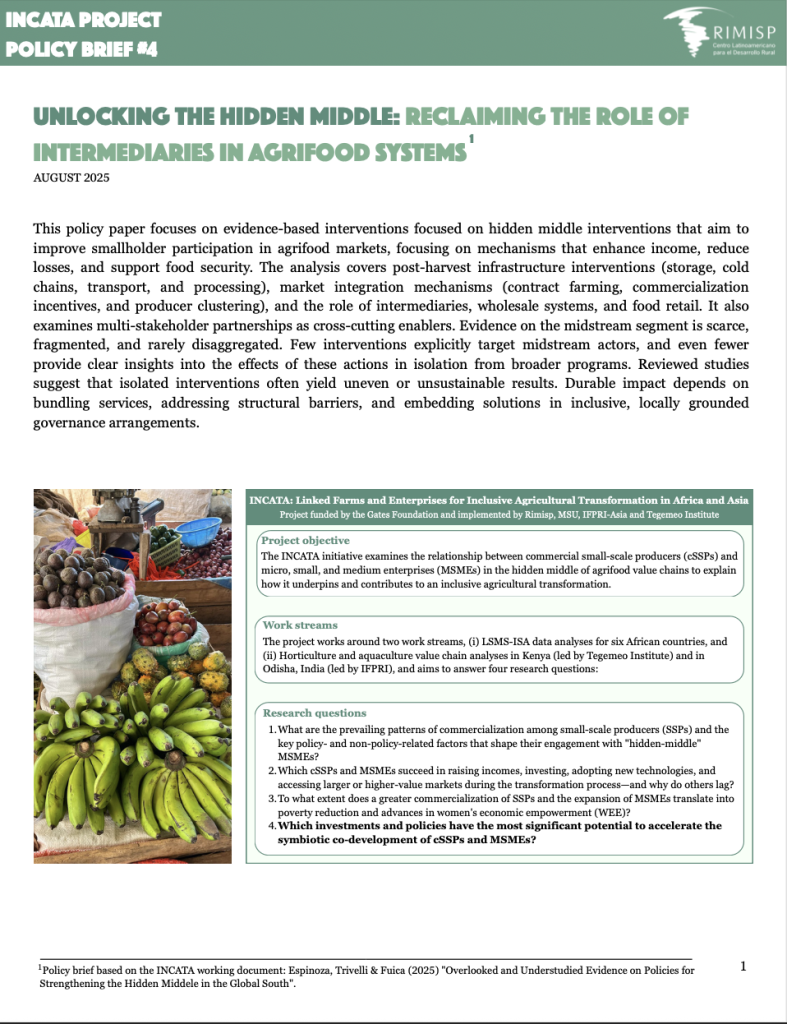
This policy paper focuses on evidence-based interventions focused on hidden middle interventions that aim to
improve smallholder participation in agrifood markets, focusing on mechanisms that enhance income, reduce
losses, and support food security. The analysis covers post-harvest infrastructure interventions (storage, cold
chains, transport, and processing), market integration mechanisms (contract farming, commercialization
incentives, and producer clustering), and the role of intermediaries, wholesale systems, and food retail. It also
examines multi-stakeholder partnerships as cross-cutting enablers. Evidence on the midstream segment is scarce,
fragmented, and rarely disaggregated. Few interventions explicitly target midstream actors, and even fewer
provide clear insights into the effects of these actions in isolation from broader programs. Reviewed studies
suggest that isolated interventions often yield uneven or unsustainable results. Durable impact depends on
bundling services, addressing structural barriers, and embedding solutions in inclusive, locally grounded
governance arrangements.
Enabling Infrastructure for Inclusive Agrifood Systems: Evidence and Implications from the Global South
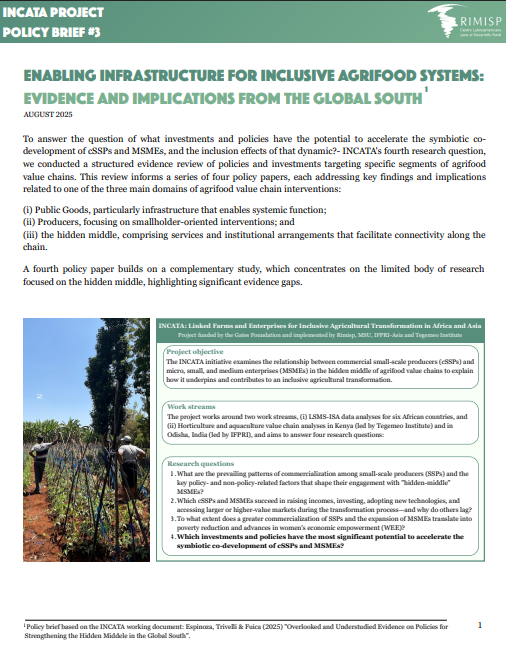
This policy paper focuses on the evidence on which policies and investments aimed at supplying public goods that support the entire agrifood system-from production to consumption-and are key for inclusive agricultural transformation.
Strengthening Producers for Agrifood Transformation: Evidence on Inputs, Irrigation, Organizations, and Innovation
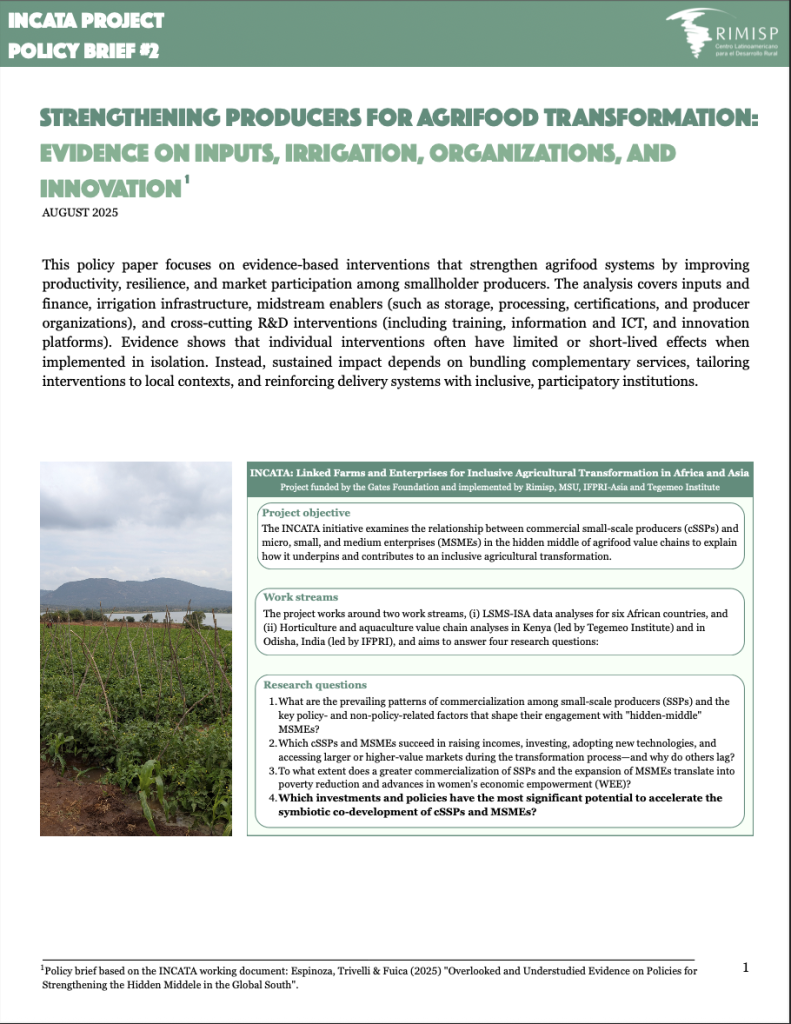
This policy paper focuses on evidence-based interventions that strengthen agrifood systems by improving
productivity, resilience, and market participation among smallholder producers. The analysis covers inputs and
finance, irrigation infrastructure, midstream enablers (such as storage, processing, certifications, and producer
organizations), and cross-cutting R&D interventions (including training, information and ICT, and innovation
platforms). Evidence shows that individual interventions often have limited or short-lived effects when
implemented in isolation. Instead, sustained impact depends on bundling complementary services, tailoring
interventions to local contexts, and reinforcing delivery systems with inclusive, participatory institutions.